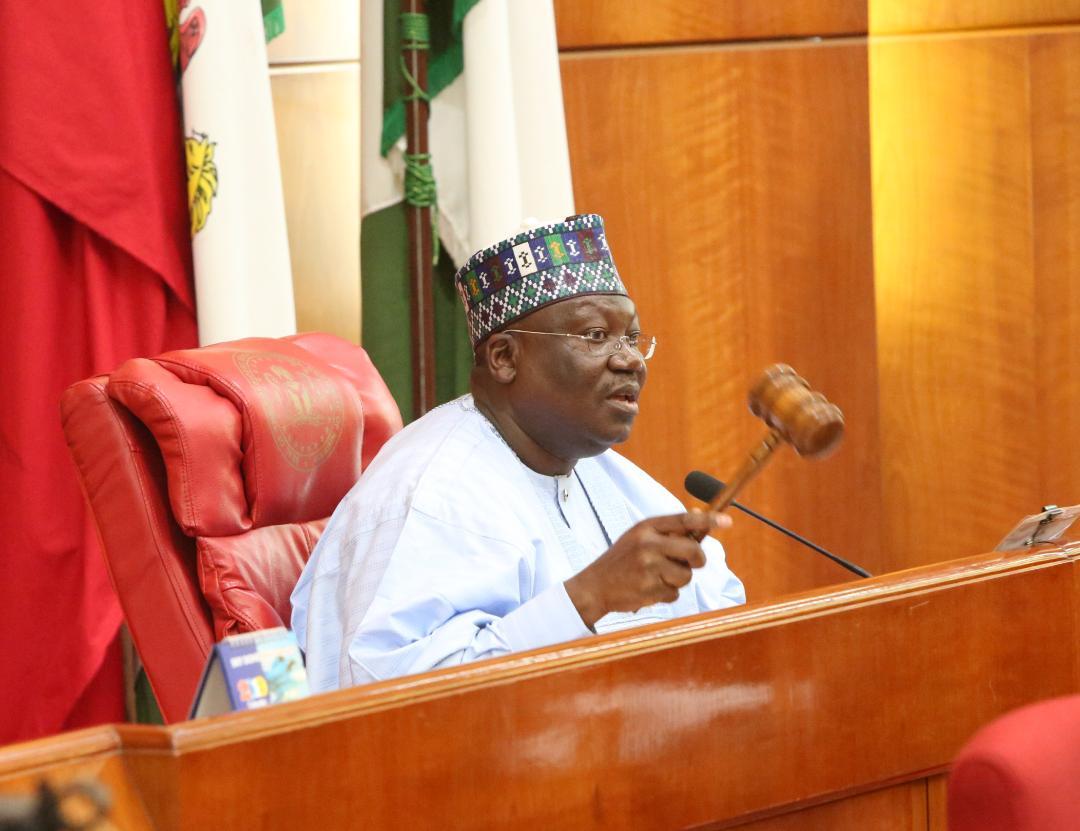President of the Senate, Ahmad Lawan, has said that for the deficit in the country’s budget to be drastically reduced, concerted effort must be made by the Executive and Legislature to explore alternative sources of funding to reduce borrowing.
The Senate President explained that such sources of funding can come by way of Public-Private Partnerships on infrastructural projects, as well as compulsory remittances of generated revenues by Ministries, Departments and Agencies of Government.
Lawan made this known on Thursday in a speech delivered during the presentation of the 2022 budget to the National Assembly by President Muhammadu Buhari.
He, therefore, insisted that the policy of zero allocation for MDAs that fail to remit revenues for the 2022 Appropriation must be sustained for positive results to be achieved.
Lawan said, “Your Excellency, generating and collecting revenues have remained major challenges in our quest for development.
“The recent efforts by the National Assembly as well as the Executive to challenge the revenue generating agencies is a step in the right direction.
“Equally important is the recent position taken by the Legislature and the Executive to insist on zero allocation for Ministries, Departments and Agencies (MDAs) that fail to remit/upload their revenues for the 2022 Appropriation.
“This saw an increase in the contribution of the MDAs by over N400 Billion.
“It is my view that MDAs can contribute to the Federation account much more than that. This policy should be expanded and deepen to cover more MDAs.”
Speaking further, he said, “Mr President, the need to enhance revenue generation and collection cannot be overemphasized.
“The level of budget deficit is high, and both the Legislature and the Executive should work to reduce this deficit through the availability of more revenues.
“I must commend the Senate and House Committees on Finance and the Ministry of Finance, Budget and National Planning for working together to improve the level of revenues for the government.”
“Mr President, we understand that due to paucity of revenue, the Federal Government has to resort to raising funds from foreign and domestic sources to provide infrastructure across the country. That is why, the National Assembly approved the requests for borrowing.
“The Commitment of the Federal Government in providing infrastructure across the country means that the funds must be raised one way or the other.
“Government should also explore other sources of funding its projects in order to reduce borrowing”, the Senate President advised.
On the timely consideration of the 2022 budget, Lawan said that the Ninth Assembly remains committed to sustaining the January to December budget timeline hitherto reverted to after its inauguration.
He recalled that the early passage of the 2020 and 2021 budget helped Nigeria to deal with the economic recession it faced as a result of the COVID-19 pandemic.
Baring his thoughts on the security situation in the country, Lawan advocated for adequate funding of security agencies in the 2022 budget.
“Mr. President, the security of lives and property of Nigerians is still a challenge.
“The National Assembly is ever willing to work with the Executive arm of Government to continue to work for better security for our citizens.
“The recent changes in the leadership of the armed forces is a clear testimony of the collaboration between the Legislature and the Executive to overhaul the security architecture for better outcomes in our fight against the myriads of security challenges.
“Mr President, the recent passage of the supplementary budget 2021 that appropriated over eight hundred billion naira to our security agencies is a commendable step in the right direction.
“Federal Government should therefore continue to provide more resources to our security agencies to sustain the gains made so far.”
The Senate President assured that the National Assembly would pass the 2022 Appropriation Bill before the end of this year.



